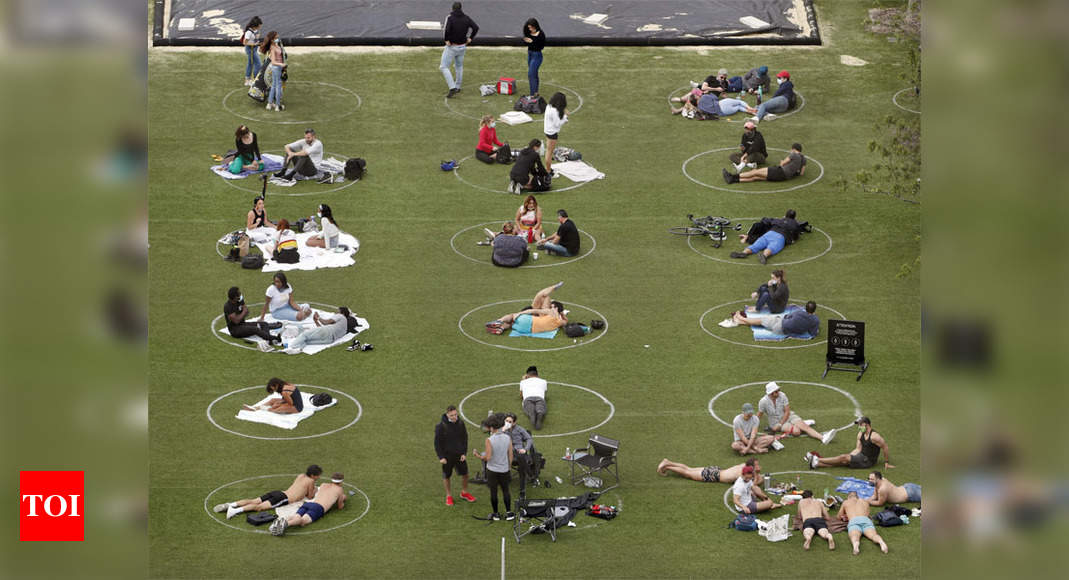WASHINGTON: While the coronavirus pandemic wreaks havoc across much of the globe, political and business leaders are already starting to think about what the world might look like once the worst of the outbreak eases.
The forecasts aren’t good.
Collapsing governments, famine, crushed economies and emboldened extremists are all among the darkest post-pandemic scenarios. Yet even less dramatic outlooks have a gloomy tinge, with political alliances crumbling and economies unlikely to rebound fast enough to blunt the impact of hundreds of millions of lost jobs.
Seams that were opening before the virus emerged are tearing apart faster. US-China bickering about the origins and response to the virus now threaten a trade deal that could help the world recover. A fight over distribution of an eventual vaccine is dividing allies. And the United Nations has been sidelined, while autocratic governments have stepped up attacks on civil liberties.
Lockdown 4.0: Live updates
Hopes that nations might momentarily set aside their differences to combat the coronavirus have largely evaporated.
“This pandemic is about as close to an asteroid hitting the earth as you can imagine in terms of a common threat,” said Richard Fontaine, chief executive officer at the Center for a New American Security in Washington. “But not only has there been no meaningful cooperation, it’s become just another vector for competition.”
More on Covid-19
One of the first fights will be over access to any lasting treatment or vaccine. French officials erupted last week when the chief executive officer of Paris-based pharmaceutical giant Sanofi said the US may get the company’s potential vaccine first because America helped fund the research. Many global leaders contend that any vaccine should be viewed as a “public good,” though inevitably some populations will have delayed access.
Other post-virus fractures are also emerging: The US shunned a Europe-led virtual meeting on May 4 to raise billions of dollars for a vaccine, and the five permanent members of the UN Security Council haven’t been able to agree on a resolution urging a global cease-fire — in part because the US objected to a reference to the World Health Organization, which President Donald Trump says is too close to China.
On a deeper level, there is widespread unease about the Trump

